Last Updated on: 16th December 2024, 09:38 am
Understanding the Importance of Electrolytes
Electrolytes are minerals that hold an electric charge and are pivotal for various bodily functions. They are found in your body, specifically in your blood, urine, and bodily fluids. Some common electrolytes include sodium, potassium, calcium, and bicarbonate (MedicineNet).
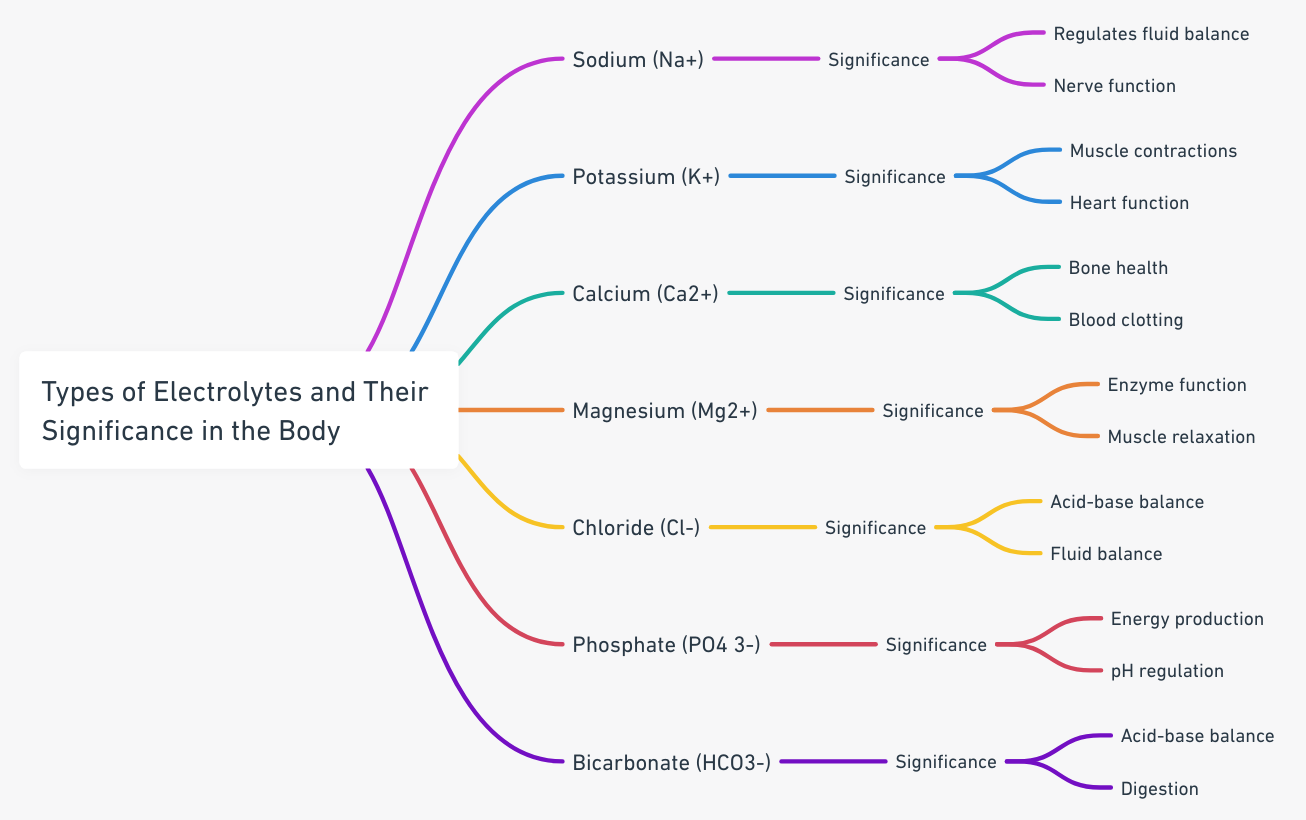
These charged minerals play crucial roles in many body functions, such as maintaining hydration, balancing blood pH, and supporting nerve and muscle function (Healthline). Proper electrolyte balance is essential for optimal health.
However, an electrolyte imbalance – either too much or too little of one or more electrolytes – can lead to severe complications, including irregular heartbeat, weakness, bone disorders, twitching, changes in blood pressure, and even seizures (Mayo Clinic).
Understanding the importance of electrolytes and maintaining their balance is key to maintaining optimal body function and overall health.
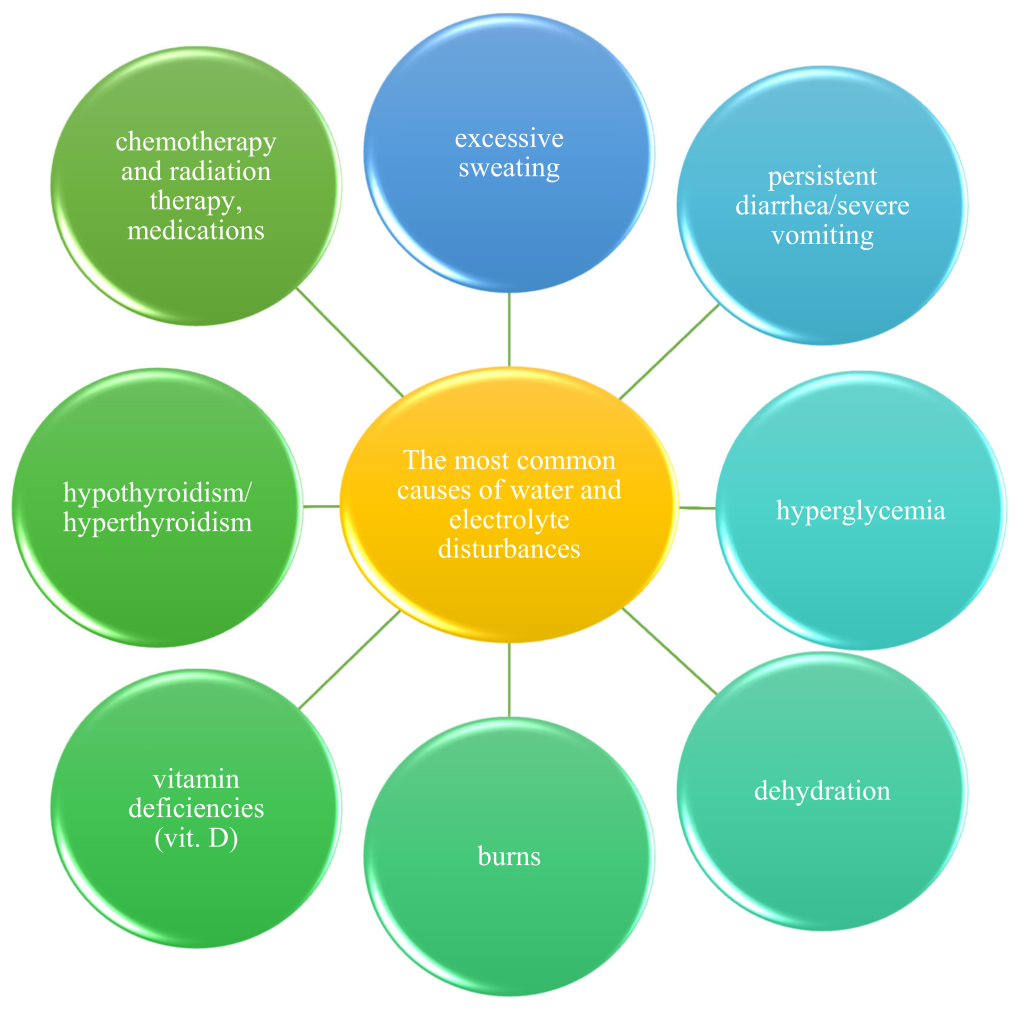
The Intricate Connection Between Hydration and Electrolytes
Water plays a pivotal role in maintaining the electrolyte balance in our bodies. As the primary fluid of our body, it helps distribute essential minerals like sodium, potassium, and calcium. These electrolytes are critical for various bodily functions, including nerve impulse transmission and muscle contractions. Thus, a well-hydrated body ensures a healthy electrolyte balance.
Dehydration and Its Impact on Electrolyte Levels
Conversely, dehydration can significantly impact electrolyte levels. When our bodies lose more fluids than we take in, an imbalance of electrolytes can result, which can result in muscle cramps, fatigue, and irregular heartbeat. In severe cases, it can even lead to seizures or shock.
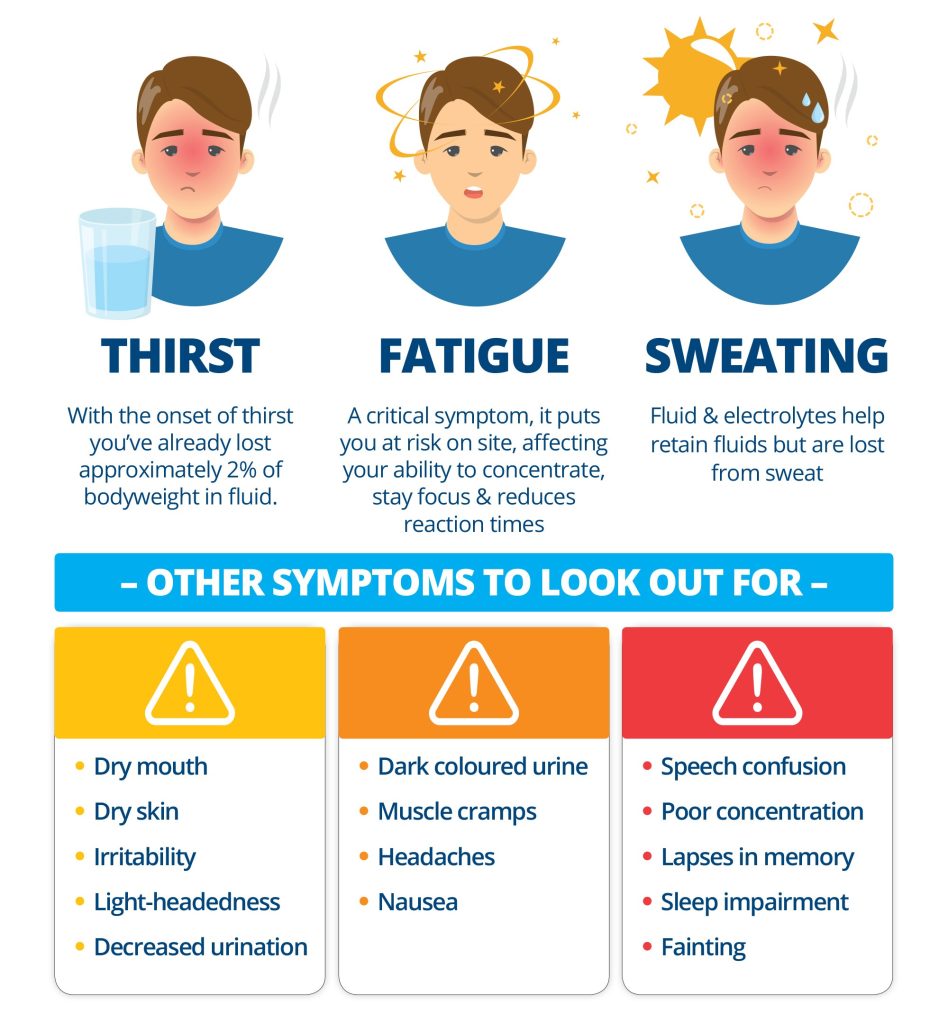
Rehydration with Electrolyte Drinks
Electrolyte drinks can be very helpful in rehydration. These drinks not only replenish lost fluids but also restore the body’s electrolyte balance, aiding in faster recovery and preventing dehydration symptoms. Therefore, they are often recommended during intense workouts, illness, or hot weather.
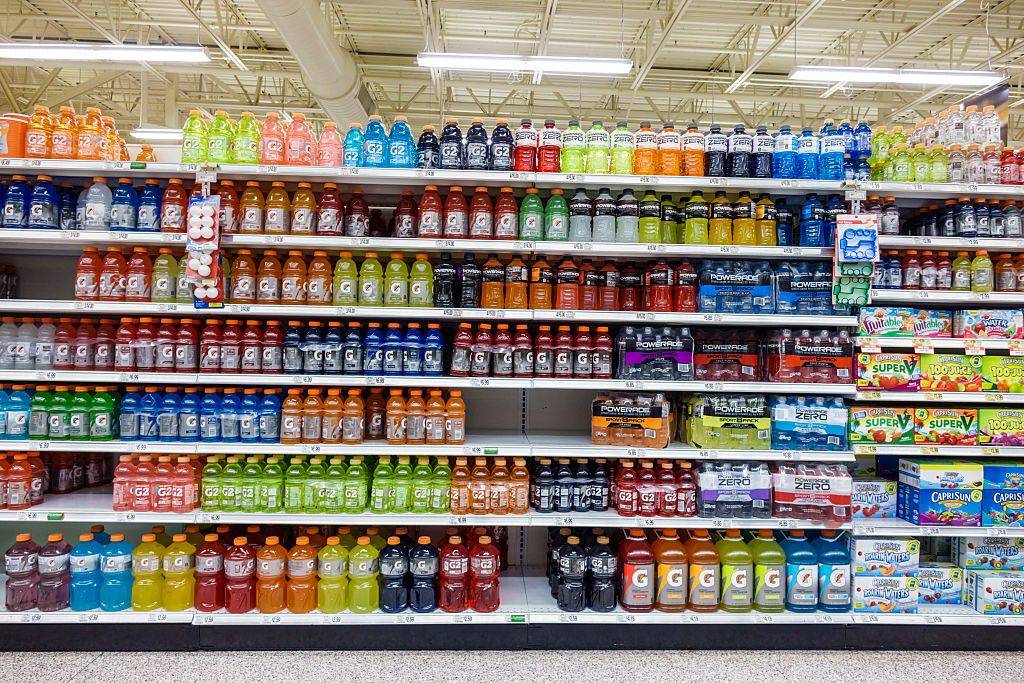
Identifying the Need for Additional Electrolytes
Maintaining the right balance of electrolytes in your body is crucial for optimal health. Any imbalance or deficiency can manifest as fatigue, muscle cramping, or irregular heartbeat. These are signs to watch out for when identifying the need for additional electrolytes.
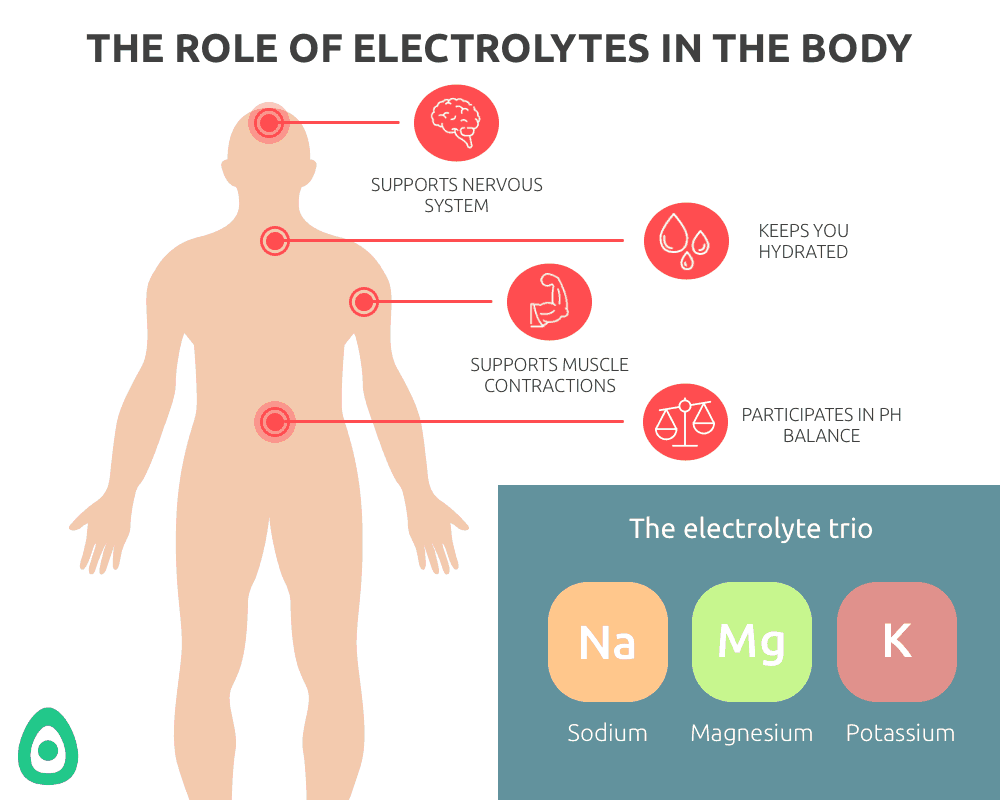
Situations Leading to Electrolyte Loss
Intense exercise, illness, poor diet, and certain medical conditions can lead to significant electrolyte loss. Understanding these situations can help you effectively manage your electrolyte levels and hydration plan.
The Importance of Medical Consultation
Self-diagnosing an electrolyte imbalance can be risky. Consulting with a medical professional is essential to accurately determining your electrolyte needs and avoiding potential health complications.
Optimal Times to Incorporate Electrolytes in Your Hydration Plan
Understanding when to add electrolytes to your hydration plan can significantly boost your health and performance. Here are the three optimal times:
- Before, During, and After Intense Physical Activities—When engaged in high-intensity workouts, your body loses vital minerals through sweat. Replenishing these electrolytes before, during, and after exercise is crucial to prevent dehydration and maintain muscle function. A study from the National Institutes of Health confirms this.
- During Illness or Recovery from Illness – Illnesses, especially those involving vomiting or diarrhea, can lead to electrolyte imbalance. Replenishing electrolytes is crucial during recovery. The CDC provides guidelines on this.
- In Hot Weather or During Heavy Sweating – Hot weather increases sweat production, leading to a higher loss of electrolytes. Therefore, increasing electrolyte intake during hot weather or heavy sweating is essential.

Knowing when to add electrolytes to your hydration plan can greatly enhance your physical performance and overall well-being.
Adding Electrolytes to Your Hydration
Electrolytes are vital minerals that maintain your body’s fluid balance. They are essential for your muscles and nerves to function effectively. Here’s how you can add electrolytes to your hydration plan.
Natural Sources of Electrolytes
Some excellent natural sources of electrolytes include fruits and vegetables, such as bananas, sweet potatoes, avocados, and spinach. Consuming these in your diet can help replenish electrolytes naturally.
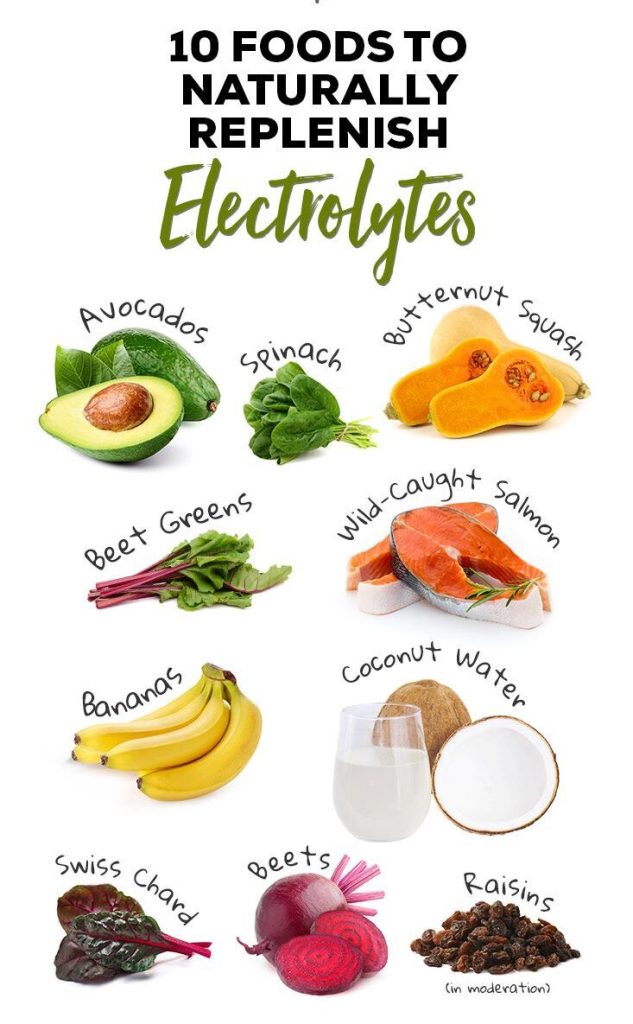
Commercial Electrolyte Drinks
Commercial electrolyte drinks are a convenient source of electrolytes, especially during or after intense physical activity. However, they often contain added sugars and artificial flavors. Weigh the pros and cons before incorporating them into your hydration plan.
Making Homemade Electrolyte Drinks
You can also make your own electrolyte drink at home using natural ingredients like lemon juice, honey, and a pinch of salt. This effectively controls what goes into your hydration plan while still getting the benefits of electrolytes.
Understanding the Risks of Overhydration and Electrolyte Overdose
Overhydration, also known as water intoxication, is a condition in which excessive water intake dilutes the body’s necessary electrolytes, particularly sodium. This can cause a dangerous imbalance, leading to symptoms like nausea and seizures, and in extreme cases, can even be fatal. Overhydration disrupts your body’s natural balance and can cause cells to swell, putting pressure on the brain and other vital organs.
Risks Associated with Consuming Too Many Electrolytes
Conversely, an overdose of electrolytes can be equally harmful. Consuming excessive amounts of electrolytes, like sodium, potassium, and calcium, can lead to conditions such as hypernatremia, hyperkalemia, and hypercalcemia. These conditions can cause symptoms ranging from fatigue and irritability to irregular heartbeat and coma.
Importance of Balance in Hydration and Electrolyte Intake
Maintaining hydration and electrolyte intake balance is crucial for optimal body function. Both under and overconsumption can lead to serious health complications. The key is to consume the right amount of water and electrolytes based on your physical activity, climate, and overall health.
Creating an Effective Hydration Plan
Designing a successful hydration plan requires careful consideration of several factors. These include your daily physical activity levels, your overall health, and your unique physiological needs. According to the CDC, the average adult needs at least 3.7 liters (men) and 2.7 liters (women) of water from all beverages and foods each day. These needs can increase with exercise and hot weather.
Incorporating Electrolyte Intake in Your Hydration Plan
Electrolytes, such as sodium and potassium, help maintain your body’s fluid balance. Including electrolyte-rich drinks in your hydration plan can prevent dehydration and restore lost minerals during physical activity. Studies show that electrolyte balance is crucial during long-duration exercises and high-intensity activities.
Factors Affecting Individual Hydration Needs
Hydration requirements vary widely among individuals based on age, weight, sex, and physical activity level. People who exercise regularly, for instance, may need more fluids to replace the water lost through sweat. Those living in hot climates or at high altitudes may also have increased hydration needs. Understanding these factors can help tailor a hydration plan that best suits your needs.
Conclusion: Maintaining Balance for Optimal Health
The role of electrolytes in hydration cannot be overstated in the pursuit of optimal health. As we’ve discussed, these essential minerals, including sodium, potassium, and magnesium, help maintain the body’s fluid balance, regulate nerve and muscle function, and support a host of other vital physiological processes.
It’s now your turn to consider your hydration habits. Are you drinking enough water? Are you supplementing it with the necessary electrolytes? These are critical questions for anyone aiming to enhance their health and wellness.
In conclusion, achieving a state of balanced hydration and maintaining optimal electrolyte levels is an essential aspect of overall health. It’s a simple yet powerful step to take in your journey to a healthier lifestyle. When in doubt, consult a healthcare professional or nutritionist to help create a personalized hydration plan that suits your needs.

